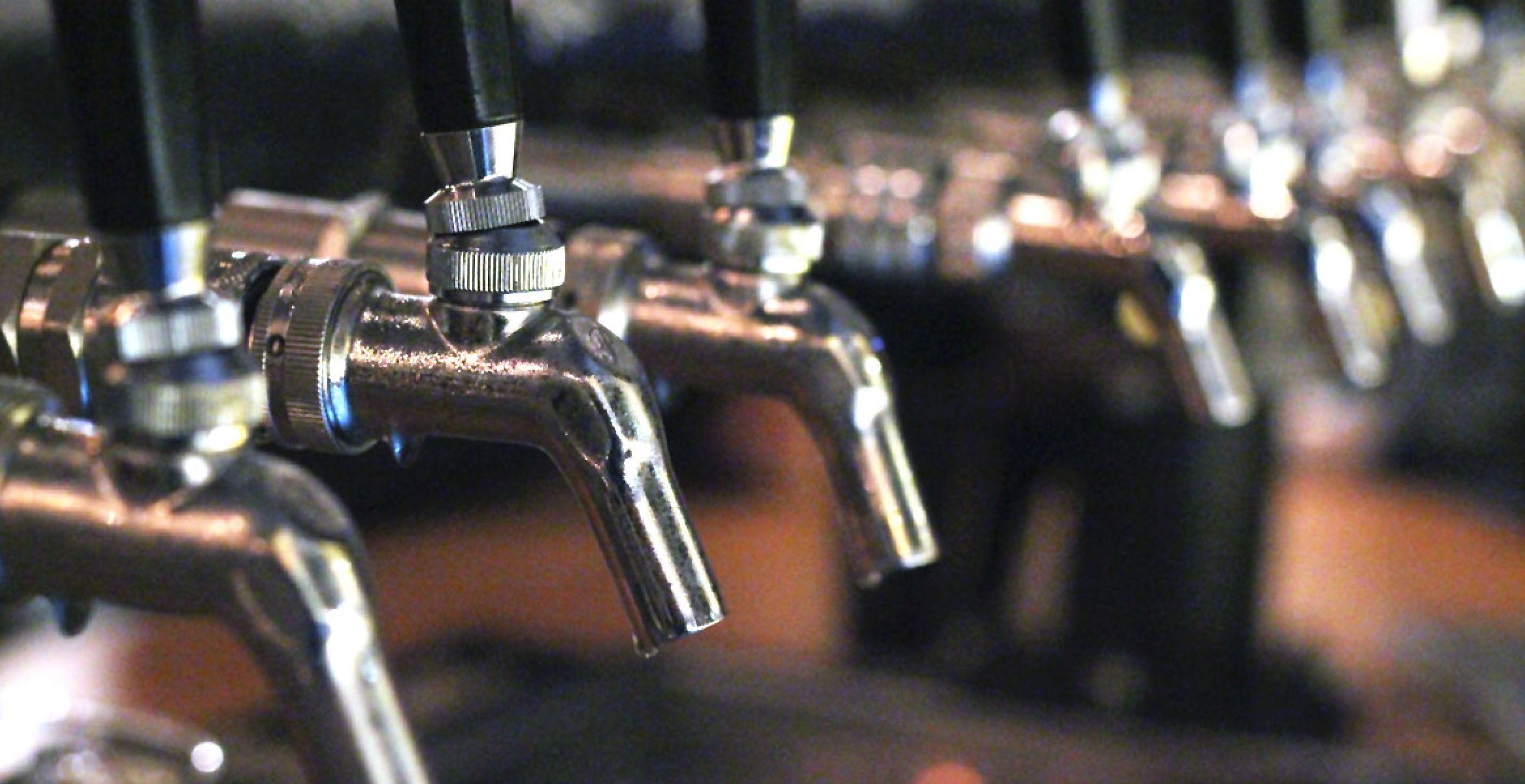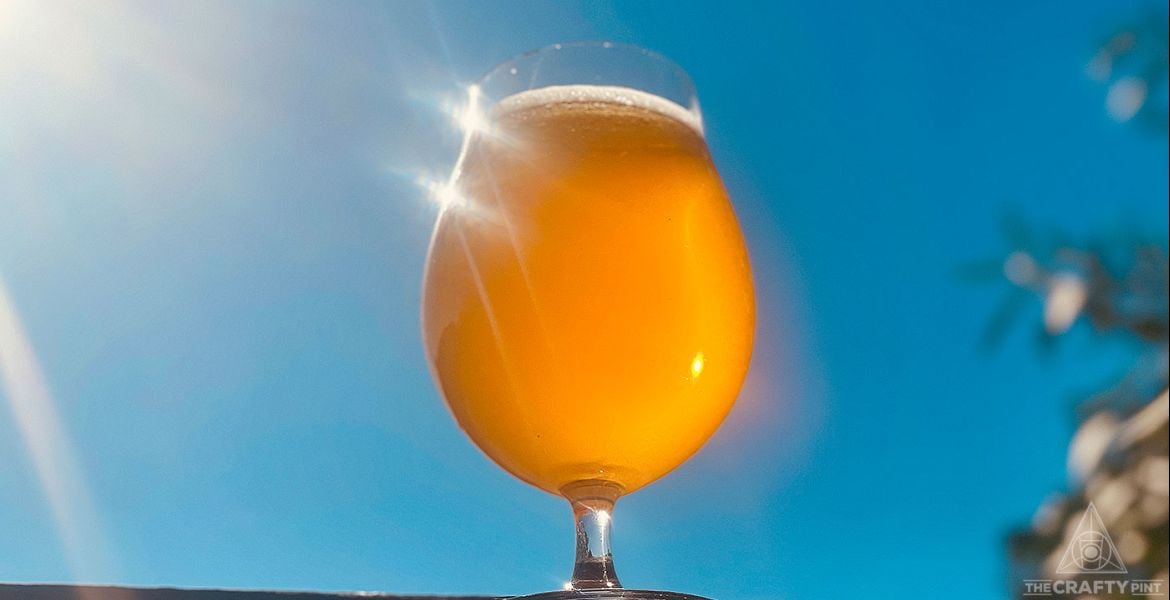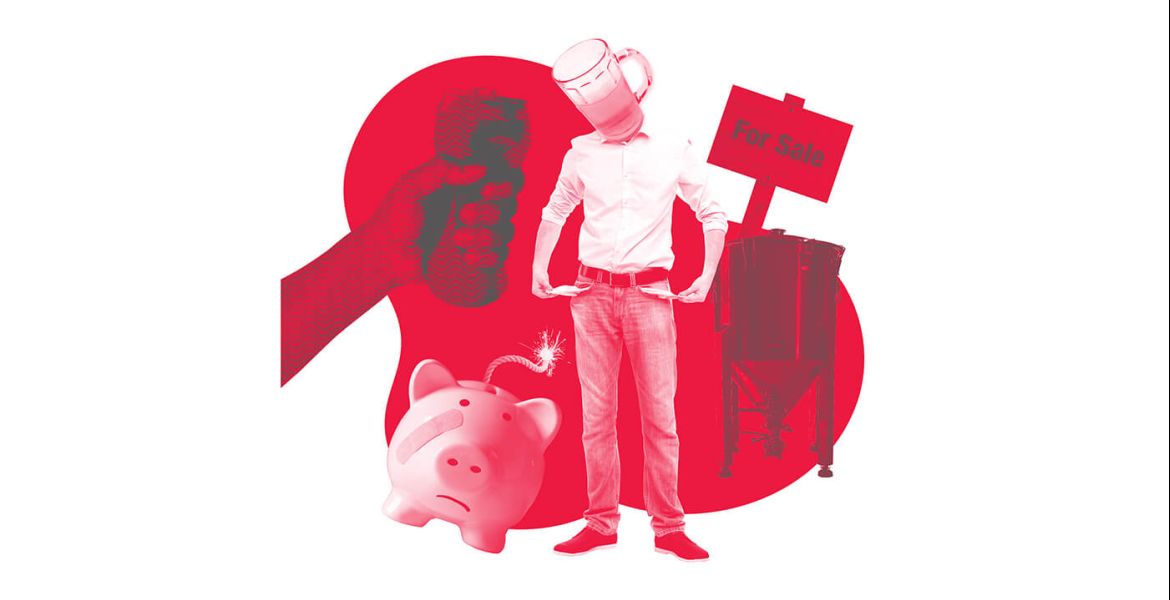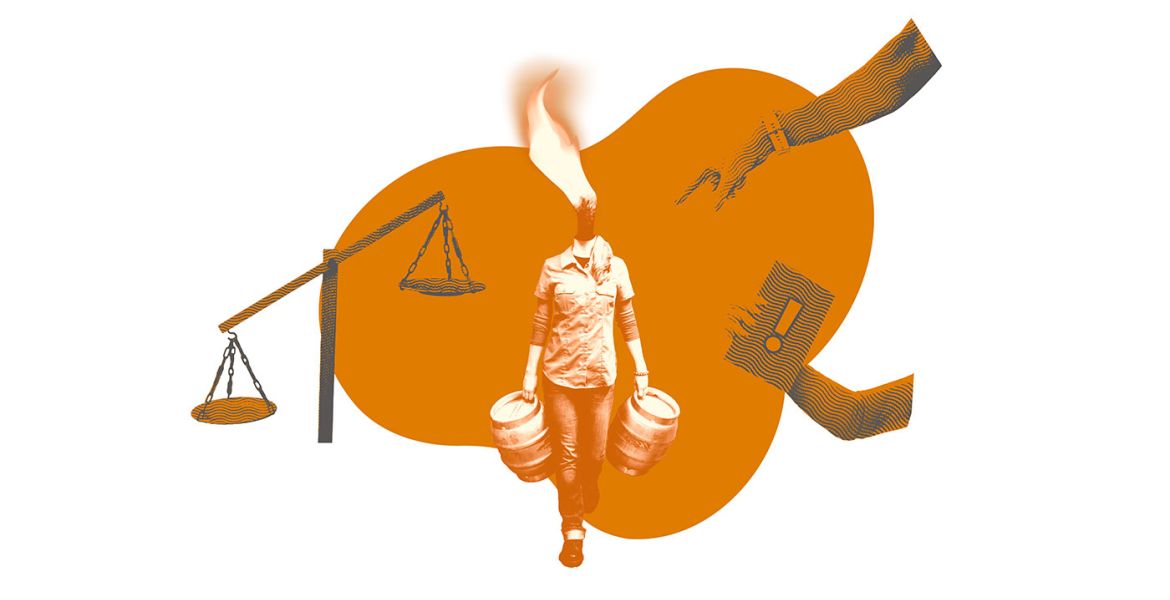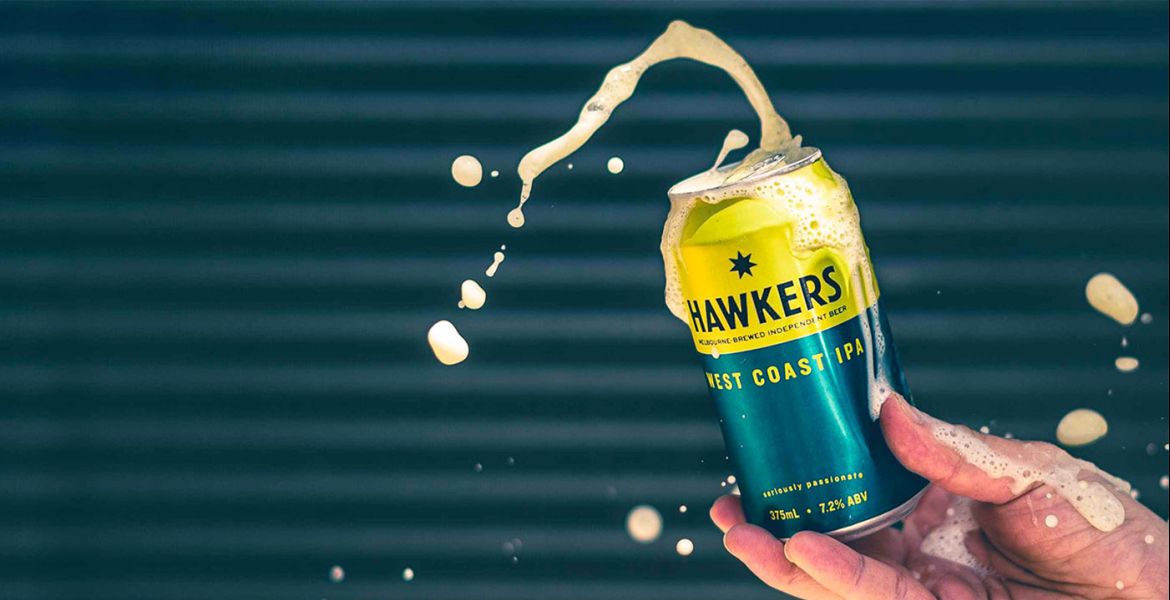There's a price war going on in the craft beer industry in Australia as set out by The Secret Brewer in this article. It raised a number of concerns and ideas that have been regularly discussed throughout the industry over the past couple of years. But is that the whole picture? Was The Secret Brewer right?
We've spoken to other brewers, one of whom has suggested that the question shouldn't necessarily be: "Why are people selling beer for $200 a keg?" but "How do small brewers justify selling kegs of pale ale for $290 plus GST?" Indeed, if a brewery owner has calculated that selling $200 kegs fits in with their business plan, then why shouldn't they?
In today's follow up article, we broaden the discussion by seeking responses to the key issues raised in part one from three people working in different areas of the craft beer industry.
THE SALES MANAGER: STEVE FINNEY – FERAL BREWING
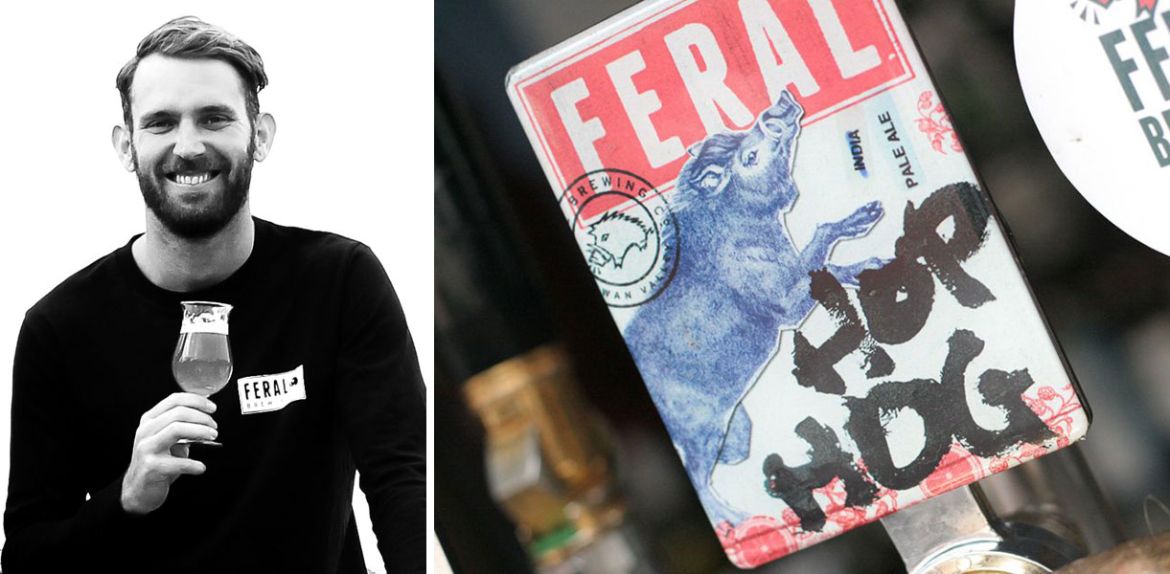
Steve Finney has worked in various sales roles within the beer industry, taking in large and small breweries. Most recently, he has been national sales manager for Feral Brewing.
Have you noticed changes in the marketplace over your time in the beer industry?
There has always been competition for tap points. Permanent tap points have always been hard to come by. A rotational tap for a beer of the month in your local pub has always been hard to come by. Having your beer pouring at your favourite restaurant has been hard to achieve. None of this has changed. What has changed is there are presently more breweries, large and small, fighting for the same available tap space.
What do you make of the practice of small breweries selling kegs for $200 or less, either individually or as part of deals?
Not beating around the bush or dancing around a fire here, but we are talking about buying and purchasing tap points. There are a number of people in the industry that scream black and blue that their breweries do not pay for tap points; they are vocal in the industry portraying the image that the breweries they work for do not engage in the practice of signing devilish deals or locking away tap points, but who are they really kidding? We live in an modern world where goods and services are sold and purchased – someone is always benefiting and there is always a motive.
Some breweries may have a business plan to sell $200 kegs of 4 percent ABV, lightly hopped pale beer. Some breweries may inflate the starting price of their draught beer to offer a bonus keg deal, where the bonus keg may be a different style. Some breweries may offer a discount on prompt payment or a direct debit system. Some breweries might pay for a draught beer system install in a venue. All of the above points are common practice within the brewing industry.
Different people run their businesses in different ways, with different goals and different motives. If selling a $200 keg is part of your business plan to secure taps and gain market share, that’s your choice. You better hope you are able to provide a consistent product that people enjoy.
A word of advice to the retailers and the publicans: do your homework and the maths. Generally, the majority of deals in the trade across the major craft breweries all end up sitting on a fairly level playing field. If it’s a new brewery, check out the online reviews: what are people saying about the beer? What are the date codes? How old is the stock? Has the beer literally fallen or been stolen off a delivery truck? Yes, that happens.
How does Feral compete in such an environment?
We hope that the work we do filters throughout the trade and across to the consumer. Ultimately, the brewing team brews great beer, the lab looks after quality control and consistency, the packaging team works on a presentable product, the logistics team works on getting the beer into our cool rooms and shipped cold around the country, marketing works on customer recognition and engagement, a national sales team broadens distribution and offers experienced service to retailers.
We compete by working as a team to provide a consistent product and great service, all of this costs money.
All the breweries I have worked for, including CUB, Little Creatures and Feral, have worked with the customer and their needs. This has included tap agreements for tap installs or tap payments and discounts on draught beer.
Where do you think this price war might lead?
There has always been a war on draught beer. There have always been more breweries and products than available tap space. I do believe that consistency and quality of product and good, old fashioned service will win. We might not win the war immediately but product and service provides longevity.
VENUE OWNER: COREY CROOKS – GRAIN STORE

Corey Crooks has worked in a number of roles in the Australian beer industry. In the past few years, he has helped spark Newcastle's craft beer scene into life, initially at the Albion and now at the Grain Store that he opened with his wife and which pours 21 taps of independent Australian craft beer.
Have you been offered cheap kegs at $200 or less?
Yes, we have been offered either some very sharp volume deals or ridiculous cheap pricing previously.
Have you taken them?
No, never. We certainly do not select what beer we buy based on price, nor would we be swayed into taking six kegs of something we only need or want one or two of purely based on free kegs on top; we pride ourselves on pulling through the beer we purchase as fresh as possible.
What impression does it give to you if a brewery is selling beer well under industry average prices?
There would obviously be an objective behind this which could be a number of factors such as:
1. Desperate to create some market presence.
2. Hoping to pull through some dated stock.
3. Slow moving due to inconsistent product or poor reputation.
4. Mostly a combination of a few of above.
Either way, there would be some ethical challenges for us to support such activity in the market.
Do you see potential dangers in such a "price war"?
Most certainly it is a dangerous practice that threatens the integrity of those who are selling good quality, consistent and well made beer at an honest market price.
What's your opinion on venues we hear about that tell brewers/reps they'll only get tap space if they meet low price points either per keg or via deals?
Much the same as the above: it is a slippery slide to the bottom. I would think that most brewers that have been in touch with the trade for long enough have built up their own opinions on who is who in the zoo – those who support them for genuine reasons and those who just move from brewery to brewery and screwing them for some great deal, basically chewing them up and spitting them out.
I can honestly say we have never hit any brewery up for any deals on buy price whatsoever. Sadly, from what I hear many venues operate under different rules and objectives.
How do you believe a craft beer venue should behave?
With honesty and integrity in what they buy and sell. Believe in what they are pouring for all the right reasons, not on who gives the best three plus three deal or whatever else motivates them.
Also, a commitment to systems and QA so that they are serving the product in the manner in which the brewer intends it to be tasted. By this I am referring to clean glassware and keeping kegs/pack stored at correct temperatures and maintaining beer taps and lines to a high standard.
Are there steps brewers, venues or beer drinkers can take to reduce the need or desire for such practices?
For a brewer, it is not my place to tell them what price they sell their kegs for but obviously it is not going to be good for the industry long term if kegs are sold below cost. From a venue point of view, see above.
From a consumer's point of view, buy the beer you enjoy drinking. If a beer is being sold for around the $12 mark at 5 percent ABV it will move very slowly and the venue will probably not order that beer again in a hurry.
I think price decisions by the consumer are more prevalent in off-premise than the on-premise market in which I am involved in; it's much easier to compare six pack prices on similar styles, which can sway purchase choice, than it is to compare the per glass situation in a bar with, say, 12 taps. But the flipside is that if a beer you would consider is decent quality is being sold for around $4 or $5 a schooner than it has more than likely be purchased via one of these "race to the bottom" deals on offer or, worse, probably very old shabby stock and a "PROCEED WITH WARNING" label should be triggered either way.
BREWERY OWNER: MAZEN HAJJAR – HAWKERS
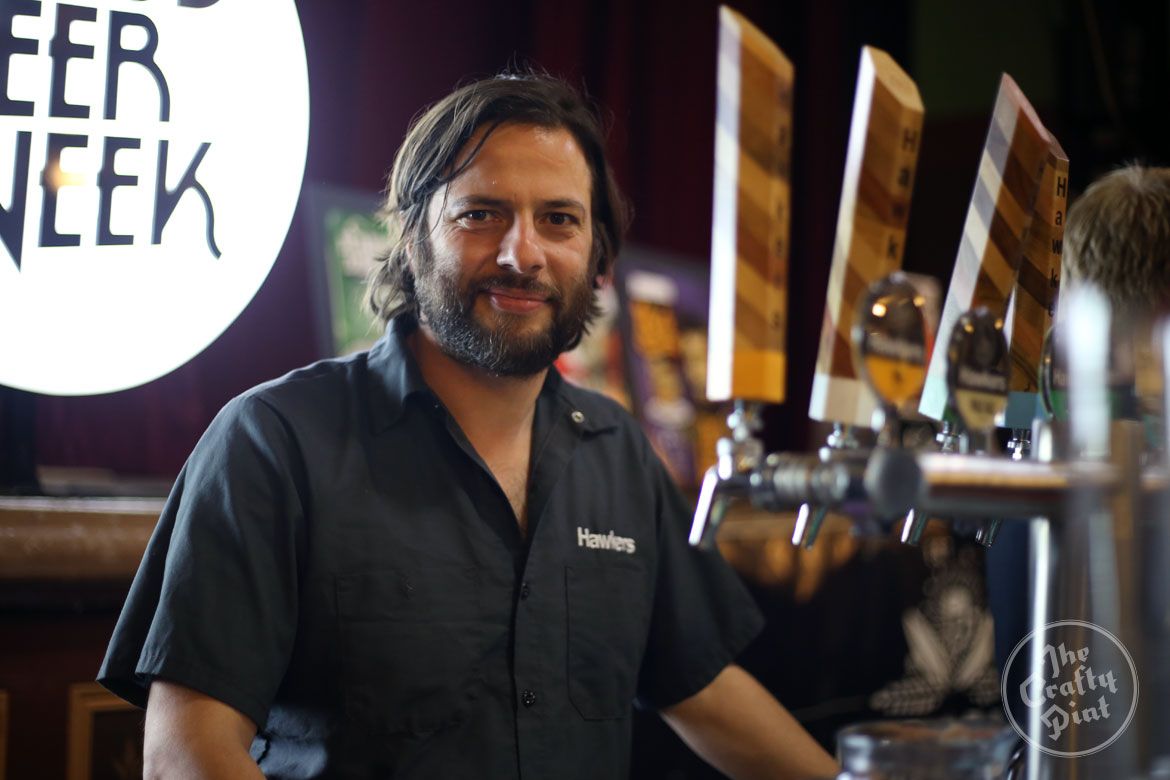
Mazen Hajjar is CEO of Hawkers Beer, the Reservoir brewery that has grown into one of the largest microbreweries in Australia since launching in February 2015. Prior to that, he launched 961 Beer in Beirut and is a keen observer of the beer industry globally as well as someone who has been outspoken on issues such as tap contracts since moving to Australia.
How are cheap kegs and tap contracts changing the environment for small brewers?
As competition in the beer industry grows, you will get price competition and quality competition that drives cost lower and quality higher. The problem with tap contracts is that it intensifies that and speeds the process up and that's when the small producers lose.
People might say: "Tough shit, you should have more money to compete." But what makes our industry and what is bringing in drinkers is the stories of the little guys who are making really creative beers. The whole reason that we got into this position [the rise of craft beer] is that the beers from the big guys who dominated for so long had become so homogenised and commoditised. What is happening now goes against the whole foundation of what makes craft beer interesting.
It's the little guys that are doing the most hiring and giving back to their communities. A faceless corporation is not going to be as involved in its community.
What do you make of the practice of small breweries selling kegs for $200 or less?
Cheaper craft beer is not necessarily evil. It can overcome a certain hurdle for people who are more price sensitive. Price doesn't really reflect quality. Ultimately, the highest costs that we have are, one, taxation and, two, packaging, which can only improve with volume.
As for venues, it's their right in the perfect market that we have to try to get cheaper beer out of a producer. All power to them. The same way that brewers want the highest revenue, venues want cheaper beer. But there's an issue when you have people that are buying cheap craft beer and selling it for a premium then buying expensive shit [beer] and selling it cheap to push volume to meet their contracts.
It's so unbalanced for the little guys. I don't mind losing a competition with another craft brewer. There's no competition with them because ultimately beer drinkers will move on and that keeps the industry fresh and exciting. The problem is that in most cases we're not [competing with other craft brewers]. You wander into a bar and ask for a pale ale and it's either Little Creatures or Fat Yak and that's not reflective of what we're trying to do.
Where do you think a price war might lead?
I suspect it will get worse because I don't see a free and open marketplace. All that this is doing is forcing us to arrive at an end point we would have arrived at later. Brewery owners have to be more professional running things as a business, thinking about the bottom line. It doesn't kill creativity to think about efficiencies, improving water usage or your use of raw materials. It's just forcing us to get to the end point earlier.
People have to be aware of what they are doing – you can't just get into this with stars in your eyes. Brewers are in an uneven playground where there are artificial subsidies for wine. It makes it really complicated as within the niche area you are competing against cheap, flavourful wine that, due to subsidies on excise [that small brewers don't receive], is an unnatural product.
But volume is in cheaper kegs. That's what came out of the Craft Brewers Conference in America last month. If you're a local brewpub, you're OK. But once you have ambitions to be a national player and produce more beer you really have to start thinking about these things.
Ultimately, it's all about fairness because the little guys are creating a buzz and excitement and attracting drinkers. People should be able to compete fairly, not have some leveraging financial wealth to keep out the little guys.
If a venue wants the cheapest pale ale possible, that's a competition you can try to win. If a venue wants the best pale ale possible, that's a competition you can try to win. The problem is when there's no competition allowed.
You can read part one of Price Wars here and check out other Secret Brewer articles here.



